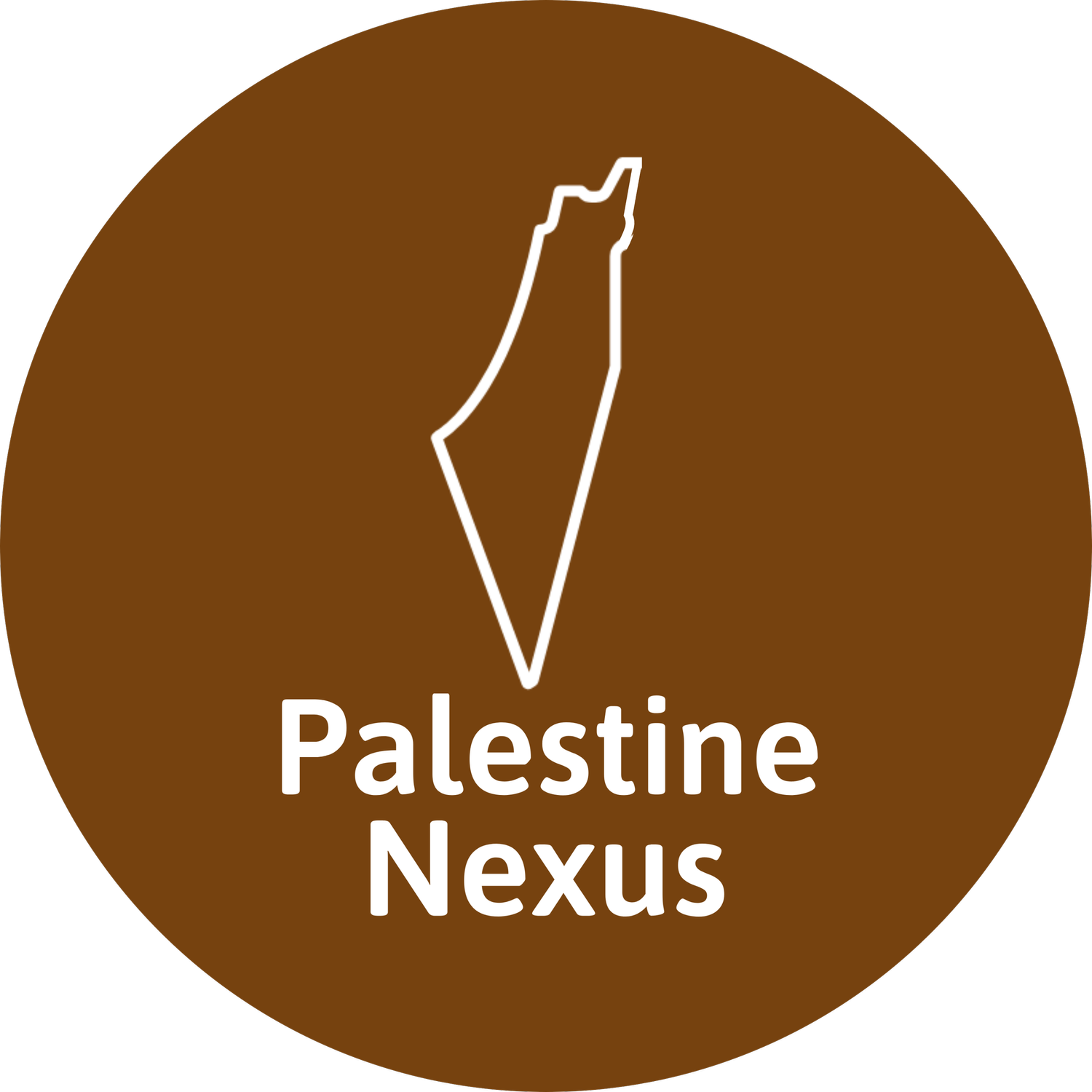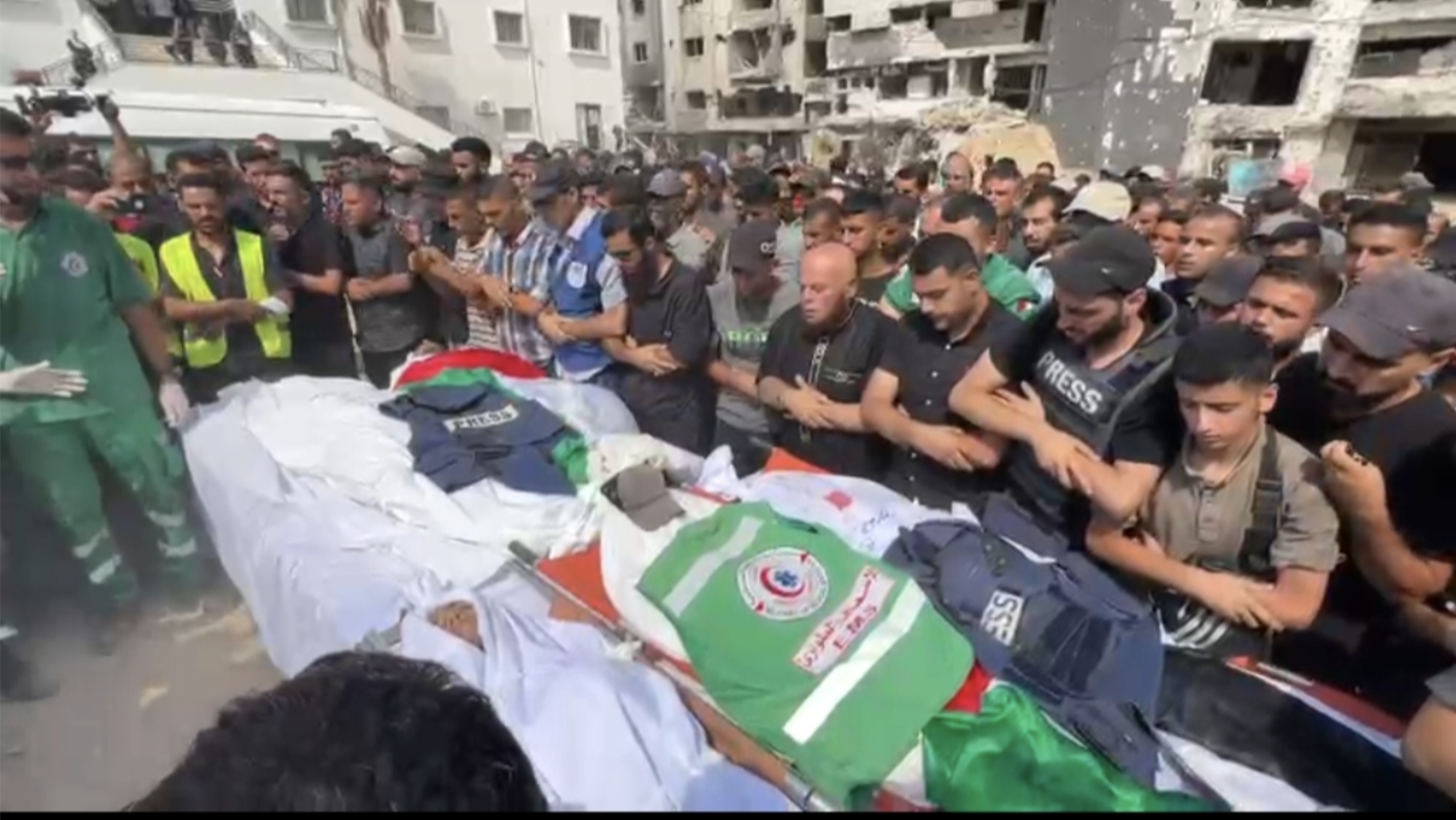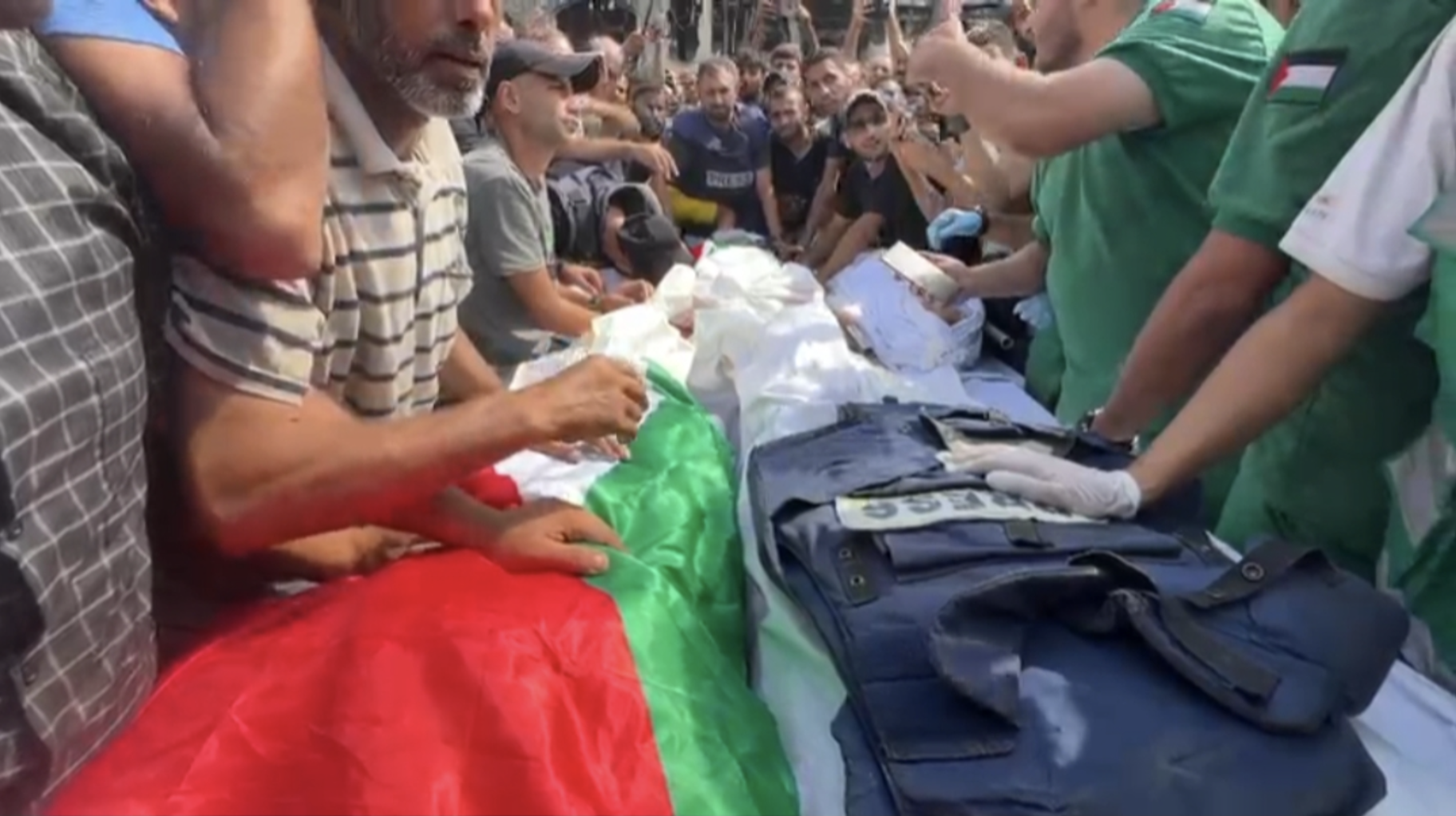Reflections of a young journalist in Gaza
People pay their respect to slain Al Jazeera journalists Anas Al-Sharif, Mohammed Qreiqeh, Ibrahim Zaher and Mohammed Noufal who were killed in an Israeli airstrike along with journalists Moamen Aliwa and Mohammad al-Khaldi. Al-Shifa Hospital, August 11, 2025. Photo credit: Hani Qarmoot
Gaza is the most dangerous place in the world for journalists. We don’t just report on stories, we live them. According to the Committee to Protect Journalists, Israel has killed 186 journalists in Gaza since October 2023 in its systematic effort to silence local coverage and remove the last eyes reporting the atrocities to the world.
On 10 August, Israel carried out its most recent assassination of journalists, the first it has publicly claimed. It hit a tent where Anas al-Sharif, one of the most prominent journalists in Gaza reporting for Al Jazeera Arabic, along with five other journalists, were resting for the night. Al-Sharif was murdered on the unfounded claim that he was the leader of a Hamas cell.
al-Sharif wrote in his “will” posted on X after his assassination: “If these words reach you, know that Israel has succeeded in killing me and silencing my voice.”
As a Gaza-based journalist, I grew up knowing that telling the truth is an obligation, not a choice. Before the war, I thought that my journalism would reveal untold stories, give voice to my people and document my community's development.
But the genocide changed everything. The streets I used to be able to walk freely have become battlegrounds. Mass graves have replaced hospitals. Now, I speak with the weight of knowing I might be the next target.
I saw the bodies of the slain journalists brought to Al-Shifa Hospital on August 11.
The air inside was thick with grief as their bodies lay side by side, marked by the brutal violence they had been reporting on. Their features still bore the resolve that characterized their resilience. Their bodies were surrounded by their families, fellow journalists and community members. The mute sorrow of those who carried them was mixed with the smoke from the shelling. After an hour of offering funeral prayers and their last respects, their bodies were taken for burial by their respective families.
Their tales, as well as the ones they died telling, cannot be silenced. This is why I keep writing.
Photo credit: Hani Qarmoot
According to the Geneva Conventions, journalists in conflict zones must be regarded as civilians. However, in Gaza, Israel has transformed journalists from protected persons to targets for assassination.
Journalists still alive in Gaza are among the last direct witnesses to the ongoing starvation, bombings and mass killings at aid distribution sites, horrors they are not just reporting on but living and experiencing first hand.
And yet, the global community of journalists has been all but silent. Our footage, our words and our reporting are used for their news cycles, yet they offer us no protection. They rely on us for their coverage yet they regurgitate Israel’s lies as we are slaughtered en masse.
About a year into genocide, Reporters Without Borders highlighted Israel’s media blackout in Gaza, one of the many reasons coverage has diminished over time, including the destruction of media infrastructure, restricting access to international journalists and deliberate targeting of Palestinian journalists. Yet, even with the rise in violence, excess mortality and total devastation, coverage of the genocide has dropped.
Unlike foreign correspondents and international reporters, we did not choose to arrive at a conflict zone. Gaza is our home. This is where we live, eat and sleep and where so many of us are being targeted for death. We walk the streets, knowing that the next bomb could be the one to claim us. The assassination of Anas Al-Sharif is a reminder that, in Gaza, Israel’s most mortal enemy is truth itself.
Subscribe to the Palestine Nexus newsletter:



